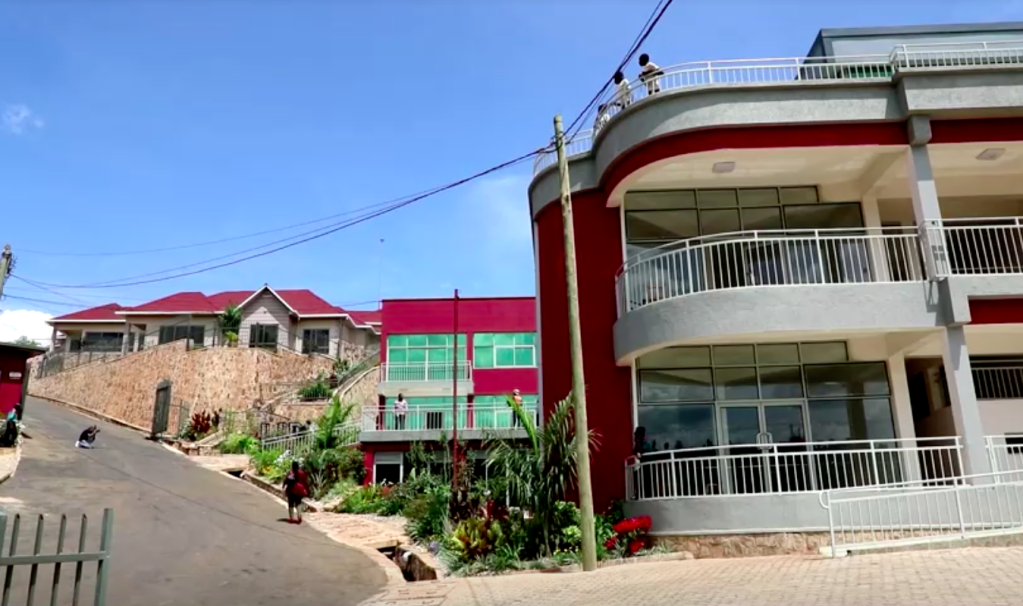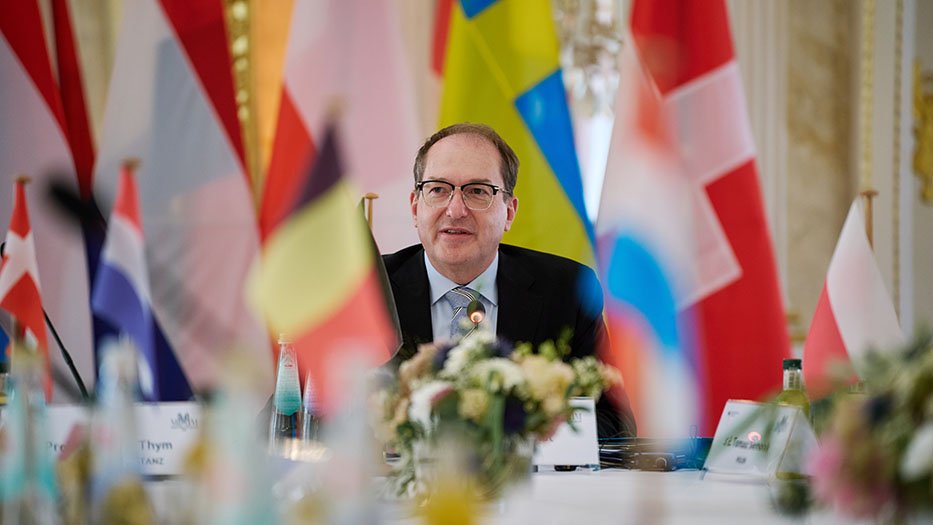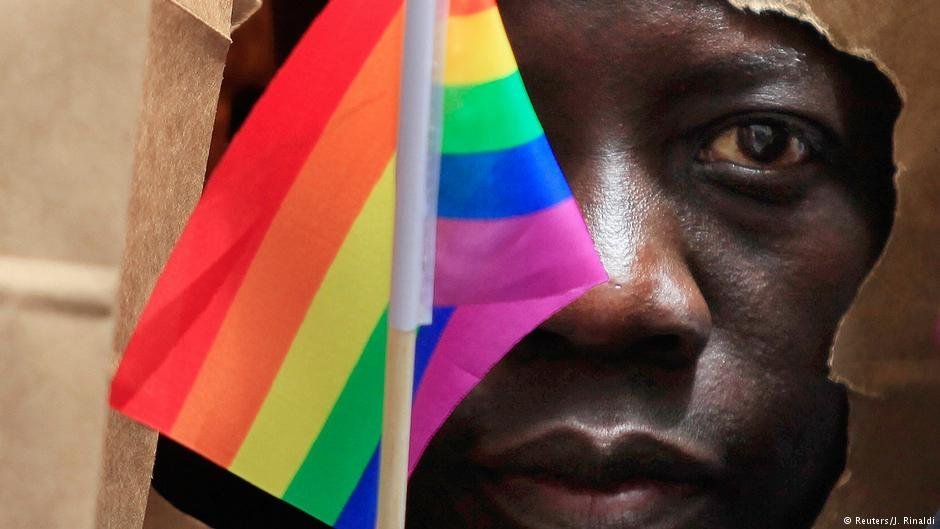The Greek government says it is exploring ways to set up repatriation centers for irregular migrants outside the EU. Asylum Minister Thanos Plevris said that the government was hoping to join an initiative currently being explored by Germany to set up such facilities. However, German authorities have remained rather tightlipped about their plans.
Speaking on Greek public broadcaster ERT, Migration and Asylum Minister Thanos Plevris announced on Wednesday that his country was hoping to enter a strategic partnership with Germany, to set up repatriation hubs outside of the EU in an unspecified African country.
"We are already in talks with safe African countries that could take in illegal migrants," Plevris said, adding that this plan was built on what he referred to as a "serious initiative" by Germany, Greece had officially expressed interest in.
Plevris added that these repatriation centers would have a "strong deterrent effect" on would-be migrants and help reduce irregular migration towards Europe.
"(I)magine sending an Egyptian who embarks on a journey to Europe to Uganda instead," Plevris said in the broadcast, explaining why he believes that such deals would notably contribute to lowering the rate of irregular arrivals.
According to Plevris, these facilities would be designed to accommodate migrants who cannot be returned to their home countries.
Plevris shared the interview -- conducted in Greek -- on his YouTube channel.
Why can some rejected asylum seekers not be sent back?
There are various reasons why certain migrants legally cannot be returned to their home countries even if they fail at every stage of their asylum request.
These can range from diplomatic issues such as the country of origin refusing to accept the individual to logistical reasons, including not being able to obtain passports or other identification documents from the government of origin.
Furthermore, some migrants end up spending enough time in their destination countries arguing their asylum cases at multiple court levels, that on account of the period of time spent they qualify for a state whereby they are not accepted as asylum seekers but cannot forcibly be deported, their presence therefore is administratively "tolerated" in their new home country.
Read AlsoMigrant offshoring: the EU's plan to deport more rejected asylum seekers under scrutiny
A relaunch of the UK's failed Rwanda scheme?
The Greek minister further explained in the broadcast that these planned repatriation centers would fall under two categories.
The first category would include secure facilities, under EU control but located in safe African partner countries, where the governments of those countries could provide varying levels of support.
These would therefore be places that irregular migrants could proactively be sent to — presumably comparable to the UK's failed Rwanda plan for migrants.
Read AlsoUK:The end of the Rwanda plan

The second category meanwhile would include projects in countries which are considered to be less safe, such as Libya, where there are already great numbers of migrants living under precarious conditions, who hope to eventually cross the Mediterranean to Europe.
In the second category, these facilities would provide safe shelter and provide a minimum level of support to lead a humane life for migrants who are stuck in these places.
Germany keeps its plans under wraps, for now
Prior to Plevris' statements, little specifics were known about Germany's intentions to outsource the housing of irregular migrants to third countries.
In response to the latest developments, however, Germany's Interior Ministry issued a statement saying it was currently workshopping ways to establish such third-country return hubs -- while operating within a comprehensive legal framework that is currently in development in the EU as part of the upcoming implementation of the New Pact on Asylum and Immigration next year.
The ministry, however, did not provide further details about what concrete talks with other EU or third countries it had been engaged in as part of this process.

Read AlsoGerman Interior Minister: 'My migration course is tough'
The Netherlands and the divisive Uganda deal
While German officials did not divulge any further details about whatever deals may be in the making with third countries in Africa, recent developments in The Netherlands might provide a glimpse into what kind of arrangements are currently under discussion.
The Dutch government in the Hague recently announced that it had reached an agreement with the government of Uganda to cooperate on returning rejected asylum seekers, using Uganda as a transit point, where those people might have to spend some time during further processing stages in the course of the return to their home nations.
This scheme, however, would only apply to rejected asylum seekers who had come from countries situated physically close to Uganda.

Read AlsoNetherlands to send rejected asylum seekers to Uganda
This comes after Uganda reached an agreement with the United States to receive nationals from third countries who fail their asylum claims in the US but refuse to return to their countries of origin.
It is unclear at this point whether the EU would legally be in a similar position to use a third country like Uganda as a third-country deportation destination once the New Pact on Asylum and Immigration fully takes effect in a year, as details pertaining to third-country deals are still being ironed out.
What is known, however, based on Plevris' statements is that the plans currently being explored by Germany are not carried out "under the auspices of the European Union but through individual member states" -- meaning that while third-country options would have to comply with EU law, the present initiative does not form part of any EU-wide program.
Read AlsoThe Netherlands: LGBT rejected asylum seekers will not be sent back to Uganda
Greece increasingly limiting asylum and immigration
Greece's interest in taking a proactive role in contributing to the development of these repatriation centers is due to the frontline role it has been playing for over ten years in Europe's migration issue.
In particular during the height of the numbers of arrivals in 2015 and 2016, Greece witnessed the arrival of over a million migrants coming mainly from Syria and other parts of the Middle East.
Since then, the Mediterranean nation has been charting an increasingly restrictive course in regards to its asylum policies, with current Migration and Asylum Minister Plevris introducing many of the harshest restrictions to date.
Despite the fact that arrival numbers in Greece have fallen sharply in recent years, the migration issue still remains one of the biggest political talking points in the country, especially since an uptick in arrival numbers on Greece's southernmost island, Crete, this year resulted in emergency decrees being issued in that region.
Read AlsoGreek government wants to remove refugee status to all who travel back to their home country
with Reuters, dpa
